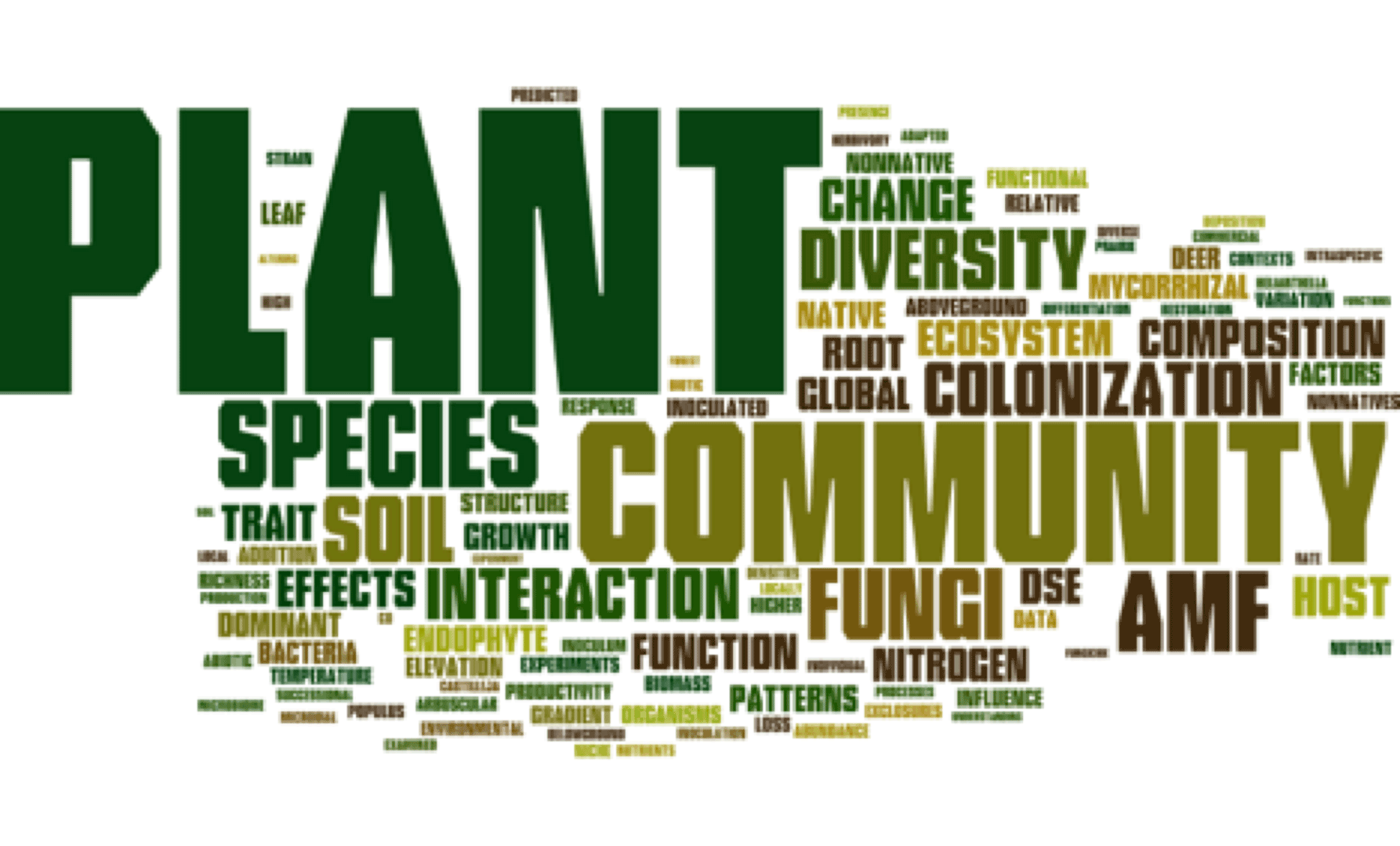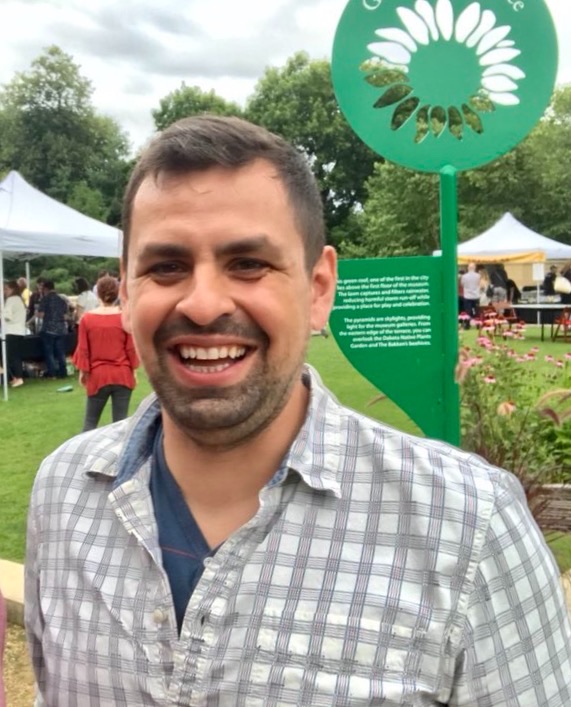Dr. Jeremiah Henning's Research
Areas of interest
· Plant-microbial interactions
· Community ecology of mutualisms
· Soil biodiversity and carbon storage
· Community and ecosystem response to global
· STEM education
Broadly, my group is interested in the biotic and abiotic contexts that shape the composition of ecological communities and the functioning of ecosystems. We use a combination of microcosm experiments, manipulative field experiments, and global-scale observational experiments to explore: 1) the drivers of biodiversity at local and global scales, 2) how fine-scale changes in plant-microbiomes scale to influence community interactions and ecosystem function, and 3) how global change will re-shape interactions among microbial communities, plant communities, plant microbiomes, and ecosystem function. We are conducting most of this work in coastal dune ecosystems along the gulf coast.

What are the drivers of biodiversity at local and global scales?
Since the time of Wallace and Darwin, global biodiversity patterns have fascinated
scientists; however, the most diverse area in the world, the soil, still remains a
mystery. To understand the biodiversity and abundance patterns of belowground communities
globally, as well as the factors that drive them, we implore macroecological and computational
approaches to synthesize across a variety of soil bacterial and fungal communities.
This provides us a set of testable hypotheses for drivers of microbial biodiversity.
We then test these hypotheses by conducting a wide-variety of biotic and abiotic drivers
in manipulative field experiments. By collaborating within global networks such as
the Nutrient Network (NutNet) and Warming and Removal in Mountains (WaRM), as well
as experiments established around Mobile, we can unravel the underlying factors driving
microbial biodiversity.
Do fine-scale changes in plant microbiomes scale to influence community interactions
and ecosystem function across the landscape?
Changes in the composition of microbiome communities can alter plant host phenotype
and performance, which can scale to shape plant community dynamics and ecosystem function. Using
mesocosm approaches, our group explores how the diversity and composition of microbiome
communities regulate host function. To conduct this work, our group is isolating and
maintaining organisms from natural plant microbiomes and maintaining those microbial
taxa within our lab. Then we are able to construct synthetic microbiome communities
to understand how plant-microbiome and microbe-microbe interactions shape plant host
function.
How will global change re-shape interactions among microbial communities, hosts, and
ecosystem function?
Global change alters plant productivity, carbon allocation to symbionts, and ecosystem
inputs, which feedback to alter the structure and function of belowground symbiotic
communities. To explore how global change is re-shaping the distribution of plant
and soil communities and the subsequent feedback to community composition and ecosystem
function, our group has established a wide variety of global change experiments in
and around Mobile. We are interested in understanding how a wide variety of global
change drivers, like eutrophication, habitat disturbance, drought, disease outbreaks,
changes in herbivore density, and warming will shape the structure and function of
ecosystems.
STEM disciplines have continued to struggle to attract and retain students from broad social and cultural identities. To address these continued struggles, advocates have called on usage of active-learning pedagogies (ALPs) and inclusive teaching strategies. However, the social aspects of ALPs, may differentially impact students who possess one or more identities that have been historically marginalized in science. I currently have 2 National Science Foundation grants to: 1) understand the experiences of students containing multiple marginalized identities in STEM classrooms, in STEM majors, and at the institution and 2) to design and implement inclusive course curriculum that address ideologically aware topics in the biology classroom.
How do multiple student identities shape in-class, STEM major, and institutional experiences of undergraduate students?
To date, we are currently conducting student interviews with a diverse array of students that self-identify as first-generation, from a racial background that has been historically excluded in STEM, or gender expressive to better understand the student experience at the University of South Alabama. This work has revealed the critical role of institutional agents (faculty, administrators, program coordinators, and academic advisors) to be barriers or bridges for students navigating the college experience. Additionally, this work has highlighted the need for broadened representation of curriculum materials (Wood et al. 2020) and roll models for students to ‘see themselves’ as STEM professions.
Will implementation of ideological aware course curriculum in biology improve student relatability with biology curriculum?
A collaboration between the University of South Alabama, Auburn University, Auburn University at Montgomery, and Tuskegee University will design course curriculum that combines social and scientific content to address social and ethical biological issues, such as unethical experimentation and the rise of human rights evolution, how biological sciences shapes societal views on identities, and persisting societal biases shaped by historical beliefs in biology.
For Full listing visit Jeremiah's google scholar page or lab website.
See More
Co-PI, National Science Foundation – MMORCC: Microbially-mediated Organismal Response to Climate Change. October 2025. $1,100,000. Henning contribution $351,000. Recommended for funding.
PI, Alabama Department of Education – Alabama Science in Motion program, August 2024-July 2025. $433,760.
PI, Mobile Bay National Estuarine Program – Invasive Species Monitoring in the Three
Mile Creek Watershed, November 2023-October 2025. $87,693.
Subaward, National Science Foundation & Tulane University – Innovation and Technology
Ecosystems. $5,000,000. South Alabama sub-award $74,824.
Co-PI, Alabama Department of Education – Alabama Science in Motion program, August 2023-July 2024. $626,666.32.
Co-PI, National Science Foundation – IUSE:EHR: Envisioning equitable biology (EEB) through open-source course modules, October 2021-September 2024.
PI, National Science Foundation – EHR Core Research, BCSER: Understanding how student identities shape STEM retention: exploring perceptions of in-class interpersonal relationships, institutional inclusivity, and discipline inclusivity. August 2020-July 2022.



